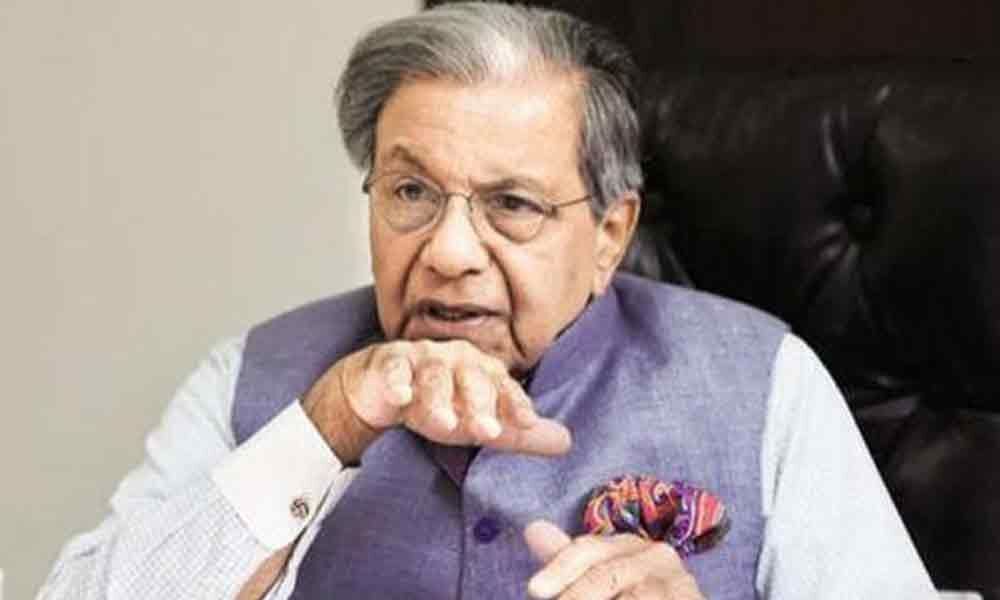Land, labour reforms to push economic growth
 15th Finance Commission chairman N K Singh
15th Finance Commission chairman N K SinghThe new government should take on the challenge of introducing reforms in areas including land and labour, says 15th Finance Commission chairman N K Singh
New Delhi: Expressing concern over muted private investments, 15th Finance Commission chairman N K Singh on Friday said in order to push economic growth, the new government should take on the challenge of introducing reforms in areas including land and labour.
He also noted that fiscal rectitude is an important intergradient in sustaining long term economic growth and is the core of long term macro-economic stability.
Macro-economic stability is one of the things that will guide India's high growth trajectory, he said at an event organised by Assocham here.
On the reforms front, Singh said "one single thing that we could not reform was factors of production -- labour, land and capital.
We were unable to achieve success on reforming factors of production."
Labour laws remain extremely complicated and there is need to bring reform by revisiting some of the issues like long term contracts and dispute resolution, he said.
Besides, there is a need to visit the area of cost, procedure and processes of land acquisition, he said and added that the cost of capital remains high which needs to come down so that business become globally competitive.
"The fact that our economy is not competitive is ... connected with inability of successive governments to be able to take on this difficult challenge.
In terms of wishlist for any new government it would be that in this first year in office will they look to this...it needs political will".
"That is why I think the sagacity of the Indian people to elect strong, stable government will be one of the important factors which will bring reform in some of the factors of production," he added.
With regard to high debt-to-GDP ratio, he said, this ratio is misaligned with other peer group countries.
The effort of the government is to bring this down and both centre and state governments are well on track to bring debt-GDP ratio to prescribed level, he added.
He also said the Fiscal Responsibility and Budget Management (FRBM) Committee 2017, has suggested bringing down the debt-to-GDP ratio to 60 per cent by 2024-25.
The FRBM committee, which was headed by Singh, also recommended that the states should bring down their debt-to-GDP ratio to 20 per cent by the same period.
Central government debt is estimated at 48.9 per cent as a percentage of GDP for 2018-19.
It is expected that Central government liabilities will come down to 47.3 per cent of GDP this fiscal, as per Budget 2019-20.
The outstanding liabilities of the state governments stand at 23.4 per cent of Gross State Domestic Product (GSDP) at end-March 2017, with a range of 46.3 per cent in Punjab and 15.1 per cent in Chhattisgarh, as per an RBI study on state budgets.











